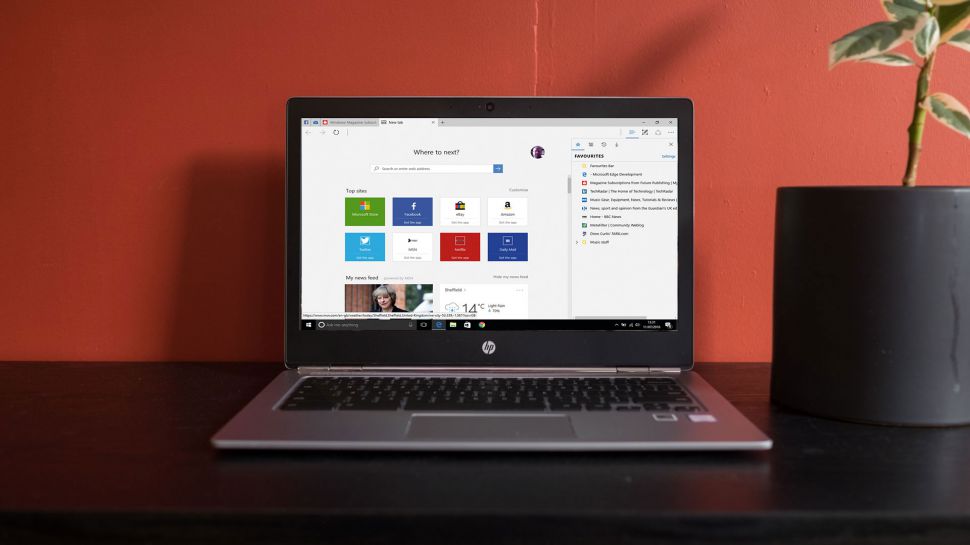
Sign up for breaking news, reviews, opinion, top tech deals, and more.
You are now subscribed
Your newsletter sign-up was successful
Microsoft has officially confirmed that its floundering Edge web browser will be rebuilt on the Chromium rendering engine, which is the same code that Google’s Chrome web browser uses.
While Chrome is the most popular web browser in the world – and by quite a margin – Edge has been struggling to make an impact for a while now, so this move is (in our view) a good one by Microsoft.
In a blog post announcing the move, Joe Belfiore, Corporate Vice President of Windows, stated that “we intend to adopt the Chromium open source project in the development of Microsoft Edge on the desktop to create better web compatibility for our customers and less fragmentation of the web for all web developers”.
Previously, Edge had its own proprietary browser engine, EdgeHTML, which was praised for its performance in some areas, but also brought frustration to web developers due to compatibility issues. The fact that such a small number of people were using Edge compared to Chrome also meant that it wasn’t always worth developers time to make sure their code was compatible with EdgeHTML.
"We intend to adopt the Chromium open source project in the development of Microsoft Edge on the desktop."
Joe Belfiore
The move to Chromium means those issues should no longer happen, with Belfiore noting that “people using Microsoft Edge (and potentially other browsers) will experience improved compatibility with all web sites, while getting the best-possible battery life and hardware integration on all kinds of Windows devices.”
As we mentioned earlier, this is a good move for Microsoft and Edge users, as it should mean future Chromium-based Edge versions will have features that are comparable with Chrome and other Chromium web browsers. Sometimes Edge has felt a little bit behind the curve.
Microsoft also promises that more frequent updates to Edge will be coming, and this new version of Edge will also be made available on various platforms and not just Windows 10, such as ARM-based Windows devices, and even macOS. It’s been 15 years since a Microsoft browser was last available for Apple PCs.
Sign up for breaking news, reviews, opinion, top tech deals, and more.
Not everyone is happy
While this move will almost certainly make Edge more popular (to be fair, it couldn’t really get any more unpopular), and widen its audience to new platforms, not everyone is happy with this move.
Chrome, and Chromium-based browsers, are now so widely-used in the web browser market that the loss of an alternative only strengthens Chrome’s dominance.
In a blog post on the Mozilla website, creator of rival web browser Firefox, Chris Beard states that “by adopting Chromium, Microsoft hands over control of even more of online life to Google.”
While it’s understandable that Microsoft is giving up trying to compete with Google, it appears that Mozilla is even more resolute. “We compete with Google not because it’s a good business opportunity. We compete with Google because the health of the internet and online life depend on competition and choice.”
So, if you’re not happy with Google’s grip on the internet, Firefox may now be your best bet. Could we see more people move from Edge to Firefox? Perhaps. And, while Microsoft could make noticeable gains with this move, it looks like Google – and the Chromium project – will be the biggest winners here.
- This could lead to a shakeup of our best web browser list

Matt is TechRadar's Managing Editor for Core Tech, looking after computing and mobile technology. Having written for a number of publications such as PC Plus, PC Format, T3 and Linux Format, there's no aspect of technology that Matt isn't passionate about, especially computing and PC gaming. He’s personally reviewed and used most of the laptops in our best laptops guide - and since joining TechRadar in 2014, he's reviewed over 250 laptops and computing accessories personally.